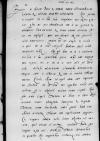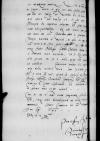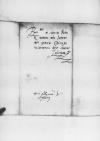Letter #2619
Seweryn BONER to Ioannes DANTISCUSCracow (Kraków), 1543-01-25
| received Heilsberg (Lidzbark Warmiński), 1543-02-12 Manuscript sources:
| ||||
Text & apparatus & commentary Plain text Text & commentary Text & apparatus
Reverendissimo in Christo Patri et Domino, domino
Reverendissime in Christo Pater et Domine, domine observandissime.
Salutem et solitam servitutis sedulitatem.
Non possum in singulas Reverendissimae Dominationis Vestrae litteras singulares non agere gratias, quibus me pro abundantia suae in me gratiae et intervisere humanissime, et rerum earum certiorem facere non negligit, quae non aliunde ad nos perscribi solent compertiores. Omnino enim de
Ego quod hinc Reverendissimae Dominationi Vestrae scriberem vicissim in hoc praesertim genere, nihil sane magnopere nunc reperio, nisi si Reverendissima Dominatio Vestra scire velit, ut certe vult, rediisse nudius tertius
Ex  BCz, 1599, p. 288 eis submittuntur auxilia.
BCz, 1599, p. 288 eis submittuntur auxilia.
Quod Reverendissima Dominatio Vestra querit de nuptiis, certius eo quotque(?) esse nunc quidem potest nihil quo cum domino
Comitiorum nostrorum hic agendorum nulla adhuc existunt initia, sane spirituales quidem domini in mora non sunt, adsunt etiam
Cum iis Reverendissimam Dominatiam Vestram sanam longaevamque feliciter valere opto eiusque veteri benevolentiae me meaque obsequia commendo.
Dat(ae) or Dat(um)⌈Dat(ae)Dat(ae) or Dat(um)⌉
Eiusdem Dominationis Vestrae Reverendissimae paratissimus servitor


